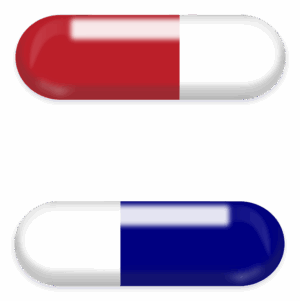Semaglutide, primarily known for treating type 2 diabetes, has expanded its therapeutic reach beyond blood sugar control and weight loss. Research shows it reduces cardiovascular risks and improves metabolic markers. Compound pharmacies play a crucial role in providing customized compounded semaglutide options, tailoring dosages to individual patient needs not met by standard formulations. This personalized approach optimizes treatment outcomes for diabetes or obesity, enhances quality of life, and encourages adherence due to tailored care. However, patients should exercise caution, verify pharmacy standards, and seek expert guidance when considering these specialized treatments.
“Discovering personalized medicine at its finest: Unlocking the potential of tailored dosages of semaglutide from compound pharmacies. This comprehensive guide explores the revolutionary role of these specialized facilities in providing customized treatment plans for various conditions. Semaglutide, a versatile therapy, benefits from compounding’s art, offering precise doses for optimal results. From understanding its therapeutic applications to exploring patient safety and success stories, we delve into why tailored compounded semaglutide options are transforming healthcare.”
Understanding Semaglutide and Its Therapeutic Uses

Semaglutide is a versatile medication with significant therapeutic potential, primarily known for its role in treating type 2 diabetes. This synthetic analog of GLP-1 (glucagon-like peptide-1) has gained prominence due to its ability to lower blood sugar levels and promote weight loss. In the context of compounded semaglutide options, pharmacies play a crucial role in providing tailored dosages for various medical needs beyond diabetes management.
Beyond its diabetes-related applications, semaglutide has shown promise in several other areas. Research suggests it may help reduce the risk of cardiovascular events and improve certain metabolic markers. These multifaceted benefits have driven the demand for compounded semaglutide options, allowing healthcare professionals to offer personalized treatments. This is particularly valuable for patients with unique requirements who may not respond optimally to standard doses or have specific conditions that necessitate adjusted formulations.
The Role of Compound Pharmacies in Customized Medication

Compound pharmacies play a vital role in providing tailored healthcare solutions, particularly when it comes to customized medication. These specialized pharmacies excel at creating unique formulations and dosages that traditional pharmacies might not offer. In the case of semaglutide, a compound pharmacy can step in to provide diverse options for patients who require specific, individualized dosages. This is especially beneficial for individuals with complex medical needs or those seeking optimized treatment outcomes.
With advanced equipment and expert pharmacists, these pharmacies can accurately measure and mix semaglutide to meet precise dosage requirements. They offer a level of customization that allows patients to receive medication precisely suited to their unique circumstances. Compound semaglutide options cater to various patient profiles, ensuring that everyone receives the most effective treatment while minimizing side effects related to incorrect or inconsistent dosages.
Benefits of Tailored Dosages for Individualized Treatment

The benefits of tailored dosages for individualized treatment with compounded semaglutide options are significant. By adjusting the dosage to match a patient’s unique needs, healthcare providers can optimize therapeutic outcomes and enhance quality of life. This personalized approach is especially valuable for managing conditions like type 2 diabetes or obesity, where traditional one-size-fits-all treatments may not be as effective. Tailored dosages allow for more precise control over blood sugar levels, which can lead to improved glycemic control and reduced risks associated with hyperglycemia or hypoglycemia.
Individualized treatment also promotes better patient adherence to medication regimens. When patients feel that their specific requirements are being addressed, they are more likely to stay committed to their treatment plans. This, in turn, increases the likelihood of long-term success in managing chronic conditions. Additionally, compounded semaglutide options offer flexibility and convenience, as specialized pharmacies can create unique formulations tailored to individual patient needs, ensuring optimal dosing and enhanced patient satisfaction.
Compounding Semaglutide: Process and Techniques

Compounding semaglutide involves creating customized dosages of this medication, often tailored to individual patient needs. This process is particularly valuable for those who require specific amounts not readily available in standard formulations. Compound pharmacies play a crucial role here, offering a range of compounded semaglutide options.
Pharmacists use advanced techniques to measure and mix the active ingredient, semaglutide, with carrier substances to achieve the desired concentration. This involves meticulous precision and adherence to strict quality control measures to ensure safety and efficacy. The result is a personalized medication that can be administered subcutaneously, offering a flexible dosing schedule for better patient management.
Availability and Access to Compound Semaglutide Options

The availability and accessibility of compounded semaglutide options have expanded in recent years, offering individuals an alternative approach to managing their health. Compound pharmacies, specialized in creating custom medications, now provide tailored dosages of semaglutide, a drug primarily used for type 2 diabetes management. This development is particularly beneficial for patients with unique dietary needs or those experiencing adverse effects from standard dosage forms.
With the increasing demand for personalized medicine, many compound pharmacies have started offering compounded semaglutide options, ensuring precise adjustments to meet individual requirements. These specialized facilities employ pharmacists and experts who can modify the drug’s formulation, allowing for flexible dosages and administration methods. As a result, patients have greater control over their treatment, access to specialized care, and potential improvements in therapeutic outcomes.
Patient Considerations and Safety Measures

When considering tailored dosages of semaglutide from compound pharmacies, patients must be aware of several important factors and safety measures. Compounded semaglutide options offer personalized treatments, but they should only be pursued under the guidance of a qualified healthcare professional. Patient suitability is crucial, as these medications are typically reserved for individuals with specific medical needs that cannot be met by commercially available formulations.
Safety is paramount; patients must ensure that the compounding pharmacy follows strict quality control measures and adheres to regulatory standards. Regular monitoring by a healthcare provider is essential to track progress, assess side effects, and make necessary adjustments to dosage. Patients should also be informed about potential risks, such as nausea, diarrhea, or low blood sugar, and should immediately report any unusual symptoms.
Case Studies: Successful Implementation of Tailored Semaglutide Treatments

Case Studies: Successful Implementation of Tailored Semaglutide Treatments
Many healthcare providers and patients have witnessed the positive outcomes of tailored dosages of semaglutide from compound pharmacies. These specialized facilities play a pivotal role in offering personalized medication solutions, especially for complex cases where standard treatments may fall short. By studying individual patient needs, compound pharmacists can create precise formulations of semaglutide, ensuring optimal efficacy while minimizing side effects.
For instance, several case studies highlight the success of compounded semaglutide options in managing type 2 diabetes. In these cases, patients experienced significant improvements in blood sugar control, leading to reduced dependencies on multiple medications. This tailored approach not only enhances quality of life but also offers a more sustainable long-term solution, demonstrating the value of compound pharmacies in advancing personalized healthcare.
